- Home
- Sean Platt
Dead City Page 2
Dead City Read online
Page 2
“Humane containment,” Alice repeated. “You mean before they’re allowed to be hunted.”
The colonel could have been defensive, but Alice was getting the distinct feeling that she and he were copacetic, on the same wavelength despite his uniform and her reputation as a pot stirrer. He answered with the most straightforward possible answer.
“Hunters are only allowed to take down ferals — those who have already entered the rage phase. But if those who are hopelessly and inevitably infected with Sherman Pope are simply allowed to develop-out at home with their families … ” He shrugged.
“I understand the necessity,” Alice said, to let him partly off the hook. She was a blogger and reporter first but wasn’t unrealistic. There were many, even today, who were diagnosed as incurable. The current system was questionable, but probably the least of evils — certainly a better option than letting fatally infected patients wait to turn in the presence of friends and neighbors. Even the hunting might feel like necessary population control (they were already dead and clearly dangerous; might as well end it quickly) if not for the world’s Bobby Baltimores. Alice liked Bobby. She was maybe even a bit attracted to Bobby. But there was no question that making entertainment out of shooting things that were once people’s friends and family was morally wonky.
“There are some, in all quarters of the DCC, Panacea, and even the army, who see the Yosemite Reserve as the best we can do. It’s a beautiful spot, and a quarter million acres is plenty of room to move around. They get to live out their last cogent days in nature, and despite what you may have heard, the vast majority of coherent necrotics survive without ever getting attacked by ferals.”
“I know better,” Alice interjected. In truth, infected never attacked infected. It was the ultimate double-jeopardy scenario — the single benefit of having the disease.
Calais nodded. “They seem to know who’s on their way to join the club and leave ’em alone. I agree it’s all very ugly. But the impact, all things considered, is minimal. The park’s chief attractions, from El Capitan to Half Dome and all the major trailheads, are still accessible outside the reserve itself. Honestly, given the relative proximity to Bakersfield, it’s ideal.”
“What do you think about the Bakersfield solution?”
“Regrettable. But if you’re asking if I agree with the people who say infected should go there instead of Yosemite because it’s already lost, then no, I don’t agree. The city is quarantined and will eventually die off. Adding new residents will only delay a time when we can go in, clear the streets, and take the city back as we were able to in San Diego, LA, and San Francisco.”
Something occurred to Alice — the kind of aggressive reporter question she should ask to put her interviewee off balance, but she hesitated because she liked Calais. He turned back toward the screen, and Alice found herself asking anyway.
“Do you have anyone working here who’s Sherman Pope positive?”
“I’m sorry to be stubborn,” the colonel said, looking at a time display in the corner of a park map projection on the wall, “but the clock is ticking, and we’ll get you to your appointment faster if I can just press on and get you through this briefing ASAP.”
CHAPTER FIVE
MPS
CALAIS HANDED ALICE OFF TO a sequential chain of three different people in uniforms — all men, as Alice had figured, even in the modern army — before she ended up in the custody of two MPs (one blessedly a woman, though she was the most stone-faced and least friendly of the five). The MPs asked Alice for her reserve guest permit and, when she said she didn’t have one, sent her back two people up the chain to an annoyed-looking man with thinning hair who seemed to have thought he was done with her. The man acted like the mistake was her fault, asked Alice to sign her name on a tablet after pretending to read something far too long and legalese to actually be read, then stamped something onto her hand.
This all seemed to be a terrible inconvenience. At first, Alice thought she’d received a hand stamp like kids got for reentry to a fair, but it turned out to be an implanted GPS chip. “You’re hotter than the rest of them, so we’d find you regardless,” the annoyed-looking man said.
Alice figured he was hitting on her until she saw him enter something into a computer and realized “hotter” referred to body temperature and “we” referred, at least in part, to satellite tracking. This finished, he waved a small device, like a cell phone, over her hand, and its screen flashed green. Alice, unimpressed with the stamp-as-permit, asked sarcastically why he didn’t just give her a bright plastic wristband like they do at water parks. The man didn’t realize it was a joke. He said, “We used to, but it just gave them something more to grab onto.”
Once her pass was apparently in place and her duty was duly logged, the man sent Alice back to the MPs. They must have been waiting specifically for her because they seemed annoyed by the delay as well.
Alice looked from the female MP to the man. The woman was larger, stronger looking, and generally more impressive. Both wore two weapons, one on each hip. On the right for both was some sort of handgun. On the other side, where she was used to seeing other utility-belt peripherals on civilian cops (handcuffs, pepper spray, maybe something to summon the Batmobile or hold screwdrivers and pliers), was an apparatus that resembled a length of pipe. If pipes had triggers.
Before Alice could ask (she was the reporter here, after all), the female MP, who had the surname Hayes stitched on her breast, gestured through a door and nudged Alice to follow the other MP, seemingly named Burrows. In the room beyond, they found a large depot space filled with vehicles. Most were ordinary army Jeeps, but a few were specially reinforced carriers Alice had never seen despite her extensive coverage of disease and cure.
“We’ll be in this Jeep here, Ms. Frank,” Hayes said, opening the rear door. “Watch your head.”
Alice looked up. She was watching her head so she didn’t hit the roll bar, not the door frame. But there was barely a half door, and almost no top.
“The vehicles are open?”
“Safari practice, ma’am. We’ll be traveling mostly empty land and sat recon shows it mostly free of deadheads. There may be some in the bushes, but that’s likely the worst of it.”
“And for those in the bushes?”
“Easier to shoot without encumbrances, ma’am. Don’t worry.”
“I’m not worried. I’m — ”
“Did Colonel Calais tell you roller coaster rules?”
“I’m not sure.”
“Keep your hands and legs and head inside the vehicle at all times,” Burrows recited, “lest you get them bitten off.”
Hayes reached across to buckle Alice into the seat like an infant. Her long-sleeved undershirt shifted, and Alice found herself staring at an old wound on the woman’s neck. There were suture lines around the wound as if the thing had been stitched, but the whole area had the look of something deflated, like rotted fruit. The skin was still gray and soft looking despite the wound clearly being years old.
“I apologize if I’m being overly personal,” Alice asked, “but do you mind if I ask you a question?”
The woman saw where Alice was looking, shifted her shirt to re-cover the wound, and straightened to full height before closing the door with Alice inside.
“It’s not a problem, ma’am.”
CHAPTER SIX
BIVOUAC
BY THE TIME THE JEEP pulled up outside what looked like a massive, heavily armed survivalist’s tree house with a fence thirty or forty yards circling its base — a place she’d seen Bobby call Bivouac — Alice felt an intense moment of relief. She could see Bobby Baltimore’s tall, quickly moving form stalking the area, pointing at a camera crew and shouting orders. She’d only met Bobby a few times, but right now he seemed like her port in the storm. She’d been up since 4:30, caught a one-stop flight — Aberdeen-Atlanta-San Francisco — before taking a military shuttle plane to Fresno Air Force Base for a helicopter ride so she coul
d get ping-ponged all over the Yosemite incoming center, fitted, tested, chipped, and briefed. It was barely afternoon Pacific time. She hadn’t reached her purpose, yet the trip had her wiped and ready for bed already.
Adrenaline — both from nerves and the kind that stemmed from excitement — had been bolstering her like a boost of strong caffeine, but now she was running low. She’d seen a few accommodating faces but none that weren’t in a rush to get her on to the next thing. Ironically, this fortified station in the middle of the country’s prime undead reserve couldn’t help but feel to Alice like an oasis, a place to finally rest her weary feet.
The gate dragged open then closed. Only once it was seated did a second, inner gate roll back on wheels. The MPs handed Alice off like a package being delivered, nodded their good luck, and left. The incoming building complex where Alice first arrived by helicopter had been on the reserve’s edge behind an enormous fence-and-guards infrastructure. This outpost was surrounded by hostile territory. The MPs looked brave but clearly didn’t like being out here any more than Alice’s guts told her to be.
The trip’s final leg lasted only about fifty feet. The woman who’d accepted her from the MPs (Sydney or Cindy; Alice hadn’t heard which) seemed to be one of Bobby’s assistants or possibly show producers and practically dragged her over to Bobby — who, blessedly, seemed just as delighted to see Alice as Alice was to stop moving for ten seconds.
“Alice Frank! Imagine my shock in seeing you here!” Bobby extended a hand and gave her the smile that charmed a nation. His blue eyes actually sparkled. It was impossible to not be a little in lust with the man if you were compatibly inclined, which Alice was.
She held out her hand. Bobby shook it.
“Nice trip?”
“Horrible.”
“Really? Which part?”
“The part where some asshole booked me an interview in the middle of zombie central.” Then she smiled because they’d already had this discussion on the phone. Nobody booked for Alice but Alice. She hadn’t had help when she’d been a nobody blogger and didn’t have any now that she’d become the go-to source on Sherman Pope or the company that had rescued the world from its menace. She’d told Bobby that it was hard to consider yourself well known or wealthy when your job was essentially gumshoe reporting, even though Alice, these days, was technically both.
“We don’t like that word around here. You know that, Ms. Frank.” Bobby made a shame-shame gesture, wagging a finger.
“Interview?”
Bobby smiled. There was a rusty chair nearby on the decaying grass, so he slouched into it and, again, flashed his famous smile. “Oh, no. I only hire people who are total whores, so that’s a word we like plenty.”
Bobby gestured to a second chair. Alice took it just as something, somewhere out in the trees past the fence, started to scream. Alice ignored it. This situation called for airplane turbulence rules: if the stewardesses (Bobby and his crew) didn’t react as if something was unusual or wrong, she’d better pretend it didn’t scare her shitless even if it did.
“Not yet, though,” Alice said. “I’m honestly not in the right state of mind for an interview.” Meaning: She needed rest. Just a few minutes of meaningless chat to put the odd world around her into some sort of order. Sleep would be best, but even a beer would do.
A large vehicle pulled around from the back of the massive, multi-platform, high-rise observation fort behind them. Unlike the Jeep, this one was covered, armored, and serious business.
“Not yet,” Bobby agreed, standing. “First, we hunt. Then we talk.”
CHAPTER SEVEN
HULKA
THE RESERVE-SCOUTING VEHICLE WAS a cross between a troop carrier and a party RV. They loaded through the back and sat in racks with harnesses. Alice kept irrationally expecting the back to open at any moment to shouts of, DISEMBARK! DISEMBARK! while some military cliché (Alice imagined Sergeant Hulka from Stripes, an old comedy her grandfather once showed her on his antique DVD player) waved his arms for them to fall out and kick some ass. But instead of loading with armed troops, Bobby Baltimore’s carrier filled with a few hunters who’d booked passage … but mostly mild-looking camera operators, sound men, production assistants, and a woman in a severe gray suit that might be an executive on the network’s worst assignment. Instead of Sergeant Hulka shouting to disembark, it was Bobby who, once they were clear of the fence, motioned for anyone who wanted to climb a ladder and ride. Bobby was alone in his desire, but he grabbed Alice by the sleeve and forced her to go topside as well.
The day was warm. They were seated like tourists atop a bus with the interior hatch closed (maybe locked; that made her nervous in a new and horrible way). Bobby gave Alice a tip of his head and another winning smile. They weren’t moving terribly fast. It was slow enough, she thought, that anyone who wanted to jump onto the thing and start climbing after the hors d’oeuvres up top could do so. But the engine was loud — surely diesel and manually steered because it needed the torque and computers still weren’t smart enough to navigate through reanimated bodies wanting to eat the passengers. Bobby shouted to be heard over the roaring engine and howling wind.
“Did Calais give you the incoming speech about the park, about the people who are sent here, blah blah?”
“Yes. It was very 101.”
“That’s government for you,” Bobby said.
Alice reached into her pocket. If she were a pro, she’d travel with a team, as Bobby did to make his shows, but at her core she was still a hack working solo behind a computer. Besides, humility made for superior journalistic integrity. These days, you didn’t need professional sound and video to make it as an investigator. Gonzo journalism almost demanded shaky work and sub-par quality. No need for a team when a camera app would do.
“Are we on the record?” he said, still projecting his voice.
“Probably should have been on the record from the beginning. It’s okay. I’ve got it here.” She tapped her head. “Do you mind?” Her finger hovered over the big red record graphic on her screen, waiting for permission.
“It’s why you’re here.”
Alice started recording. She had a small prehensile tripod in her trip bag, so she scanned the landscape then attached the camera to the railing, focused on Bobby.
“Did you ask why the reserve is in Yosemite?”
“I did. You know me so well.” And he seemed to. Bobby got along with everyone, a friend to all. It’s why his shows were so successful. They’d only met a handful of times, but deep down, Alice had to admit he seemed like an old best friend. It was dangerous to trust, but trust was definitely something that Bobby Baltimore routinely inspired. Just as Alice, for most of the nation, inspired trust.
“Part of it’s the official answer. But part of it’s climate. There’s a fair amount of sun and warmth here, but not always. Some people argued for Bakersfield since it had to be walled off anyway. Why not just toss people in there if they’re too far gone? But the problem is that SoCal weather’s too perfect. There’s a lot of outrage from leftists about what people like me do — not as a quasi-celebrity, but as a hunter — but the truth is we’re a drop in the bucket. There are still thousands of newly infected brought here every month, all selected against and deemed incurable. Hunters can’t kill that many. But the cold does it fine.”
“Cold kills them?”
“Not always. But did you ever freeze a steak?”
Alice nodded. “Cooks up fine after you thaw it.”
“Sure. If you wrap it up right. But once these things rage, they don’t know how to wrap themselves up anymore for the winter. And then guess what happens?”
The vehicle came to a sudden stop. They were in an area like all the others they’d passed, but this time the back gate lowered and the hunters in their company began to casually unload, as if preparing for a Sunday picnic.
Bobby must not have realized they were going to stop. He looked surprised then rapped on the hatch. It was opened from be
low by a bland-faced PA.
“Wait,” Alice said. “What happens to the rage-stage deadheads when winter comes and they’re not ‘wrapped’ well?”
Bobby was halfway down the ladder. Someone was pushing a giant weapon into his hands. One that Alice, who’d watched a lot of Bobby’s hunting shows like everyone else, recognized as “the BFG” — short for “Big Fucking Gun.”
“They get freezer burn,” Bobby said then extended a hand to Alice. “Come on down. This is where things get fun.”
CHAPTER EIGHT
BIG FUCKING GUN
SEEING BOBBY HUNT IN PERSON was little like seeing it on TV. The BFG, while large and multi-barreled, was smaller than it looked onscreen. Bobby’s calm (which Alice had always thought must be put on considering the tense situations he was always in) now appeared genuine, even as they strode into the brush with all its granite outcroppings and excellent hiding spots. There was nothing nervous about him. Alice, on the other hand, was plenty tense. She knew this song and dance in theory — considering all the reporting she’d done on Hemisphere BioTech, Archibald Burgess, and the sticky ethical issues that came with overprotective government agencies and a blended, perhaps aggressively mainstreamed society — but being in the hot zone was so much more nerve-racking than sitting behind a computer.
“There,” Bobby said, pointing. “You see?”
Alice did. There was one man shambling along what seemed to be an old hiking trail, climbing over boulders, intermittently stumbling, moving with an unsteady gait. Alice had a neighbor who moved just like him, but Kelly Pulombo didn’t share this man’s vacant, bloodthirsty stare.

 Jumper: Books 1-6: Complete Saga
Jumper: Books 1-6: Complete Saga WhiteSpace Season One (Episodes 1-6)
WhiteSpace Season One (Episodes 1-6)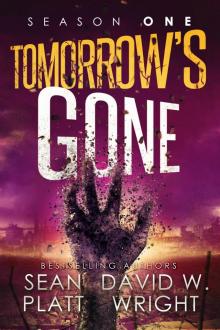 Tomorrow's Gone Season 1
Tomorrow's Gone Season 1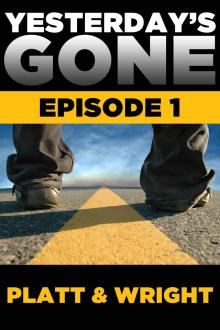 Yesterday's Gone: Episode 1
Yesterday's Gone: Episode 1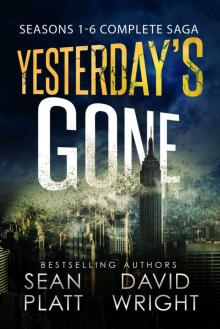 Yesterday's Gone: Seasons 1-6 Complete Saga
Yesterday's Gone: Seasons 1-6 Complete Saga The Beam- The Complete Series
The Beam- The Complete Series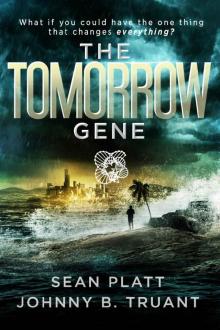 The Tomorrow Gene
The Tomorrow Gene Karma Police: Karma Police Book Two
Karma Police: Karma Police Book Two The Fall (Karma Police Book 5)
The Fall (Karma Police Book 5)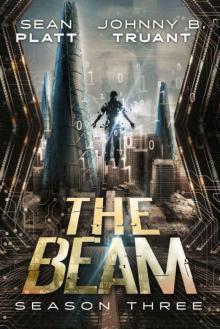 The Beam: Season Three
The Beam: Season Three Resurrection
Resurrection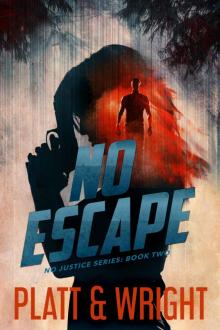 No Escape (No Justice Book 2)
No Escape (No Justice Book 2)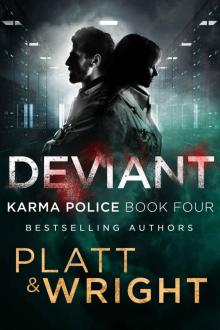 Deviant (Karma Police Book 4)
Deviant (Karma Police Book 4)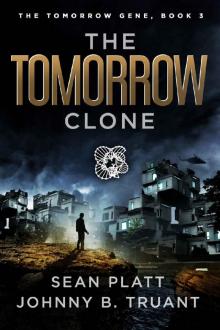 The Tomorrow Clone (The Tomorrow Gene Book 3)
The Tomorrow Clone (The Tomorrow Gene Book 3)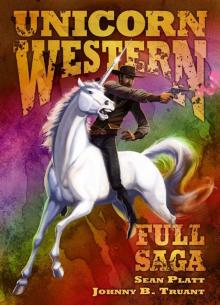 Unicorn Western
Unicorn Western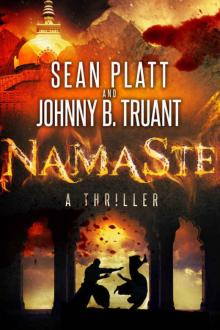 Namaste
Namaste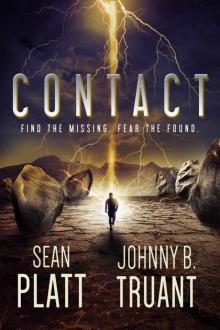 Alien Invasion (Book 2): Contact
Alien Invasion (Book 2): Contact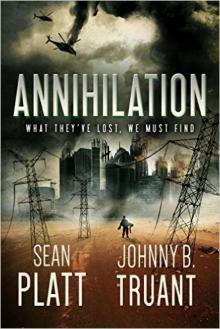 Alien Invasion (Book 4): Annihilation
Alien Invasion (Book 4): Annihilation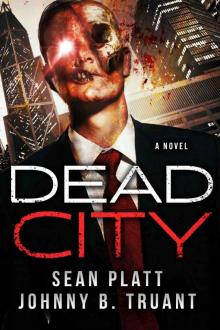 Dead City
Dead City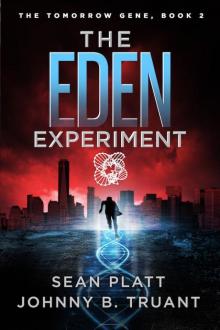 The Eden Experiment
The Eden Experiment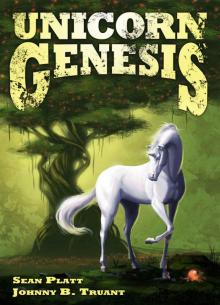 Unicorn Genesis (Unicorn Western)
Unicorn Genesis (Unicorn Western)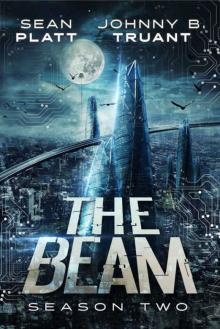 The Beam: Season Two
The Beam: Season Two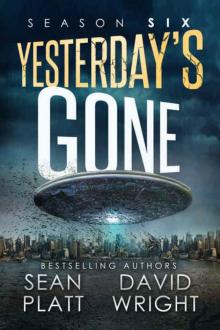 Yesterday's Gone: Season Six
Yesterday's Gone: Season Six Homecoming (Karma Police Book 6)
Homecoming (Karma Police Book 6)![[Alien Invasion 01.0] Invasion Read online](http://i1.bookreadfree.com/i1/03/30/alien_invasion_01_0_invasion_preview.jpg) [Alien Invasion 01.0] Invasion
[Alien Invasion 01.0] Invasion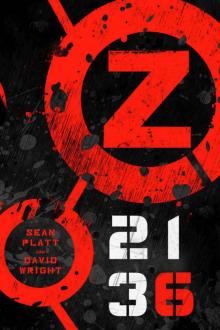 Z 2136 (Z 2134 Series Book 3)
Z 2136 (Z 2134 Series Book 3)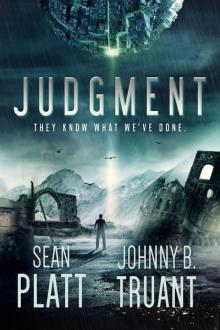 Alien Invasion (Book 5): Judgment
Alien Invasion (Book 5): Judgment Threshold
Threshold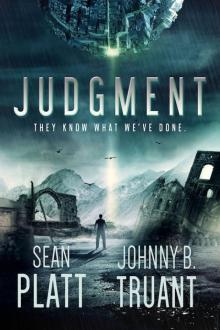 Judgment
Judgment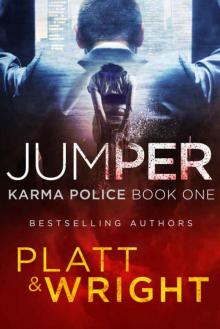 Jumper: Karma Police Book One
Jumper: Karma Police Book One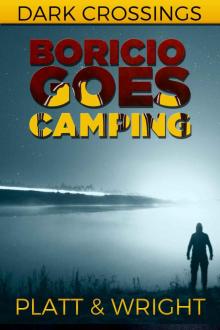 Boricio Goes Camping (Dark Crossings)
Boricio Goes Camping (Dark Crossings)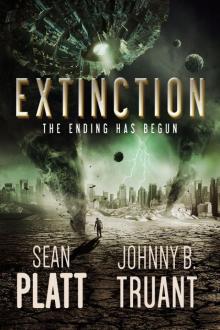 Extinction
Extinction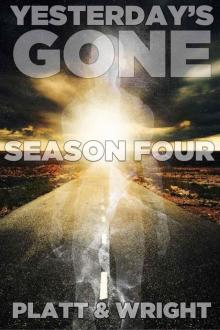 Yesterday's Gone (Season Four): Episodes 19-24
Yesterday's Gone (Season Four): Episodes 19-24![[No Justice 01.0] No Justice Read online](http://i1.bookreadfree.com/i2/04/09/no_justice_01_0_no_justice_preview.jpg) [No Justice 01.0] No Justice
[No Justice 01.0] No Justice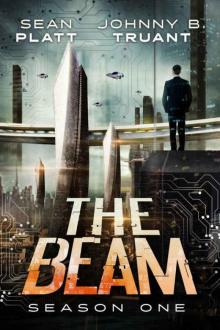 The Beam: Season One
The Beam: Season One La Fleur de Blanc
La Fleur de Blanc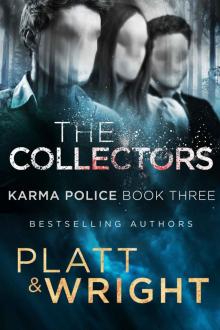 The Collectors (Karma Police Book 3)
The Collectors (Karma Police Book 3)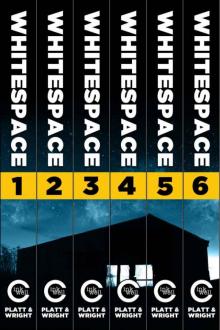 WhiteSpace: Season One (Episodes 1-6 of the sci-fi horror serial)
WhiteSpace: Season One (Episodes 1-6 of the sci-fi horror serial)